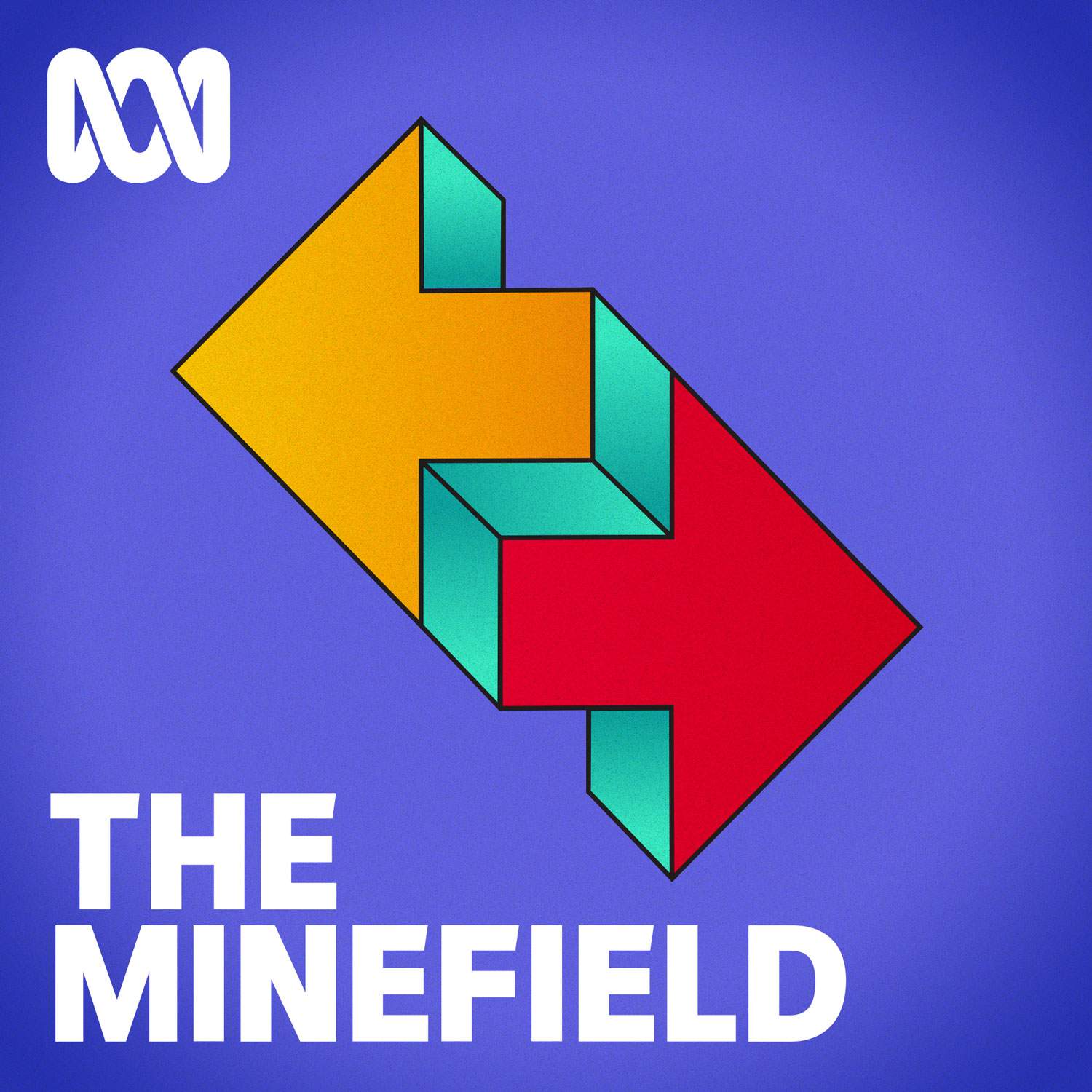

The Minefield
ABC
In a world marked by wicked social problems, The Minefield helps you negotiate the ethical dilemmas, contradictory claims and unacknowledged complicities of modern life.
Episodes
Mentioned books

Feb 15, 2023 • 60min
Sports betting: Is it corrupting what it means to be a fan?
Dr Lauren Gurrieri joins Waleed Aly and Scott Stephens to discuss the sophisticated ways sports gambling operators are targeting new clientele — through targeted ads and by parasitising existing social media technologies.

Feb 8, 2023 • 60min
What is generative-AI doing to our capacity to write — and think?
Professor Naomi Baron joins Waleed Aly and Scott Stephens to discuss whether ChatGPT and its soon-to-be-released competitors, with their lure of efficiency and ease, are threatening the human ability to write.

Feb 1, 2023 • 60min
What does it mean to be “literate” — and is it under threat?
Professor Maryanne Wolf joins Waleed Aly and Scott Stephens to discuss whether we are entering an age of widespread moral illiteracy — an incapacity to engage in the processes that make up the habit of deep reading.

Jan 25, 2023 • 60min
What’s at stake in this year’s constitutional referendum?
Mark McKenna, Professor Emeritus of History at the University of Sydney and expert on Australian constitutional history, joins the discussion with Waleed Aly and Scott Stephens. They delve into the challenges facing the First Nations Voice referendum and the conservative disposition of Australians regarding constitutional change. The conversation highlights the historical lessons from the 1967 referendum and the need for inclusivity in Australia’s evolving identity. McKenna emphasizes the importance of addressing fears and uncertainties to foster a positive dialogue around potential reforms.

Jan 19, 2023 • 60min
What’s the point of political comedy?
While political comedy has long been a distinguishing feature of truly democratic cultures, one of the more notable shifts over the past two decades has been the merger of comedy into political commentary. What has this done to the conditions of our common life?

Jan 12, 2023 • 60min
The ethics of shame
Perhaps no “moral emotion” in our time is more reviled than shame. It is regarded, certainly in the West, as uniquely destructive to a healthy sense of self, as psychologically damaging and socially abusive, and to be avoided at all costs. Professor Owen Flanagan joins Waleed Aly and Scott Stephens to discuss whether shame has been given a bad rap, and why we might need more of it.

Jan 5, 2023 • 60min
Is anger corrosive to the moral life? A conversation with Christos Tsiolkas
There is no doubt that emotions like anger can be a proper response to the persistence of injustice or inequality or prejudice or cruelty in the world. But it can also be exhausting and insatiable in its desire for retribution, or to impose one’s will upon the world. Should we, then, seek to renounce anger?

Dec 29, 2022 • 60min
Purification and the Moral Life: Disciplining the Eyes
There are habits of seeing which can corrupt our moral lives, or clutter our vision, or defile our imaginations. Just as there is a “contemptuous gaze”, as Iris Murdoch puts it, there are also “eyes tempered by grace”. So what might it mean to undergo a “fast for the eyes” in order to see the world more clearly?

Dec 22, 2022 • 60min
The Art of Living: Jane Austen's "Emma"
In Jane Austen’s novel Emma, we find an abiding concern with the demands, not just of propriety, but of morality, an attentiveness to the dangers of self-deception, and vivid reminders of the importance of friendship to progress in the moral life.

Dec 21, 2022 • 54min
Bonus episode: The 2022 Simone Weil Lecture on Human Value
In November 2022, Scott Stephens delivered the 20th annual Simone Weil Lecture on Human Value hosted by the Australian Catholic University. His topic was the moral conditions of democratic life.


